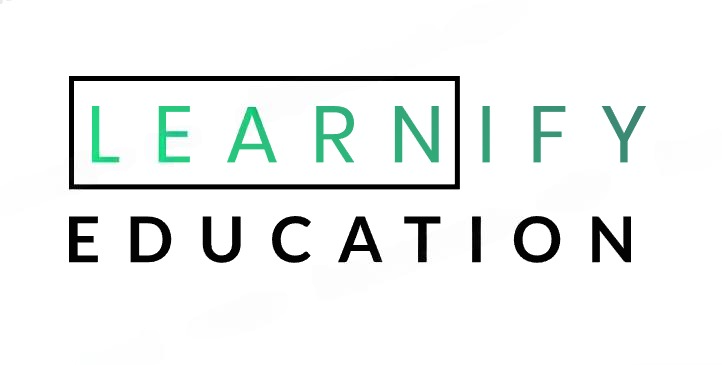BTech Computer Science Subjects: Full Syllabus and Career Guide
Compare India’s leading universities on a single platform within two minutes. Online MBA for job professionals 100 + Universities 30X comparison factors Free expert consultation Quick Loan facility Post Admission Support Learnify Exclusive Community Job + Internship Portal No-Cost EMI From ₹5100/- Subsidy Available upto ₹20,000/- A BTech in Computer Science is one of the most popular degrees for students who want to enter the dynamic world of technology. Understanding the BTech Computer Science subjects covered throughout this 4-year program is crucial for preparing for a successful career. This guide will give you a detailed breakdown of the BTech Computer Science syllabus semester-by-semester, along with insights into career opportunities. What is BTech Computer Science? BTech in Computer Science (Bachelor of Technology in Computer Science) is a 4-year undergraduate degree focused on computer systems, programming languages, software development, and emerging technologies like Artificial Intelligence, Machine Learning, and Cloud Computing. Each year covers essential BTech Computer Science subjects that equip students with technical skills and problem-solving abilities. BTech Computer Science Subjects: Year-Wise Syllabus Let’s break down the BTech Computer Science subjects covered in each year of the program. First Year: Foundation Subjects In the first year, students are introduced to fundamental engineering and basic computer science concepts. Semester 1 Subjects Programming for Problem Solving Engineering Mathematics I Engineering Physics Basic Electrical Engineering Workshop Practice Semester 2 Subjects Data Structures Engineering Mathematics II Engineering Chemistry Introduction to Digital Electronics Communication Skills The first-year BTech Computer Science subjects focus on building a strong foundation in mathematics, science, and programming. Second Year: Core Computer Science Subjects The second year dives deeper into core BTech Computer Science subjects that form the backbone of the field. Semester 3 Subjects Computer Organization and Architecture Object-Oriented Programming (OOP) using C++ Discrete Mathematics Operating Systems Database Management Systems (DBMS) Semester 4 Subjects Design and Analysis of Algorithms (DAA) Computer Networks Theory of Computation Software Engineering Java Programming These core subjects provide a strong understanding of computer architecture, algorithms, and programming skills. Third Year: Advanced Computer Science Subjects In the third year, students explore advanced topics and emerging technologies. Semester 5 Subjects Artificial Intelligence (AI) Compiler Design Web Technologies Data Mining and Data Warehousing Microprocessors and Microcontrollers Semester 6 Subjects Machine Learning Cloud Computing Internet of Things (IoT) Mobile Computing Elective I (e.g., Cryptography, Digital Image Processing) These BTech Computer Science subjects prepare students for the latest industry trends like AI, cloud computing, and IoT. Fourth Year: Specialization and Project Work The final year focuses on real-world applications and specialization through projects and electives. Semester 7 Subjects Big Data Analytics Cybersecurity Blockchain Technology Elective II (e.g., Natural Language Processing, Quantum Computing) Industrial Training/Internship Semester 8 Subjects Major Project Professional Ethics and Entrepreneurship Elective III (e.g., Robotics, Quantum Computing) The fourth year allows students to apply their knowledge through internships and project work, making them industry-ready. Elective Subjects in BTech Computer Science Many universities offer electives to help students specialize in specific fields. Some common electives include: Cybersecurity Artificial Intelligence and Machine Learning Data Science Cloud Computing Internet of Things (IoT) Choosing the right electives can enhance your expertise and boost your career prospects. Why Choose BTech in Computer Science? 1. High Demand for Tech Professionals The tech industry is growing rapidly, creating high demand for computer science graduates. Companies are actively looking for skilled professionals with a strong grasp of BTech Computer Science subjects. 2. Diverse Career Opportunities A BTech in Computer Science opens doors to a variety of careers, including: Software Developer Data Scientist Cybersecurity Analyst Machine Learning Engineer Web Developer 3. Innovation and Growth Computer science is at the forefront of innovation, with opportunities to work in AI, robotics, cloud computing, and more. The knowledge gained from BTech Computer Science subjects prepares you to be a part of this exciting future. Skills Developed Through BTech Computer Science Subjects Programming and Coding Skills Problem-Solving and Logical Thinking Software Development and Testing Data Analysis and Management Cybersecurity and Ethical Hacking These skills are essential for succeeding in the competitive tech industry. Conclusion A BTech in Computer Science provides a comprehensive education in computer systems, programming, and modern technologies. The subjects covered in this program equip you with the skills needed to excel in the technology sector. Whether you aspire to be a software developer, data scientist, or cybersecurity expert, the knowledge of BTech Computer Science subjects will set you on the path to success. Prepare to step into the future of technology with confidence and make the most of your journey through this dynamic and ever-evolving field.














